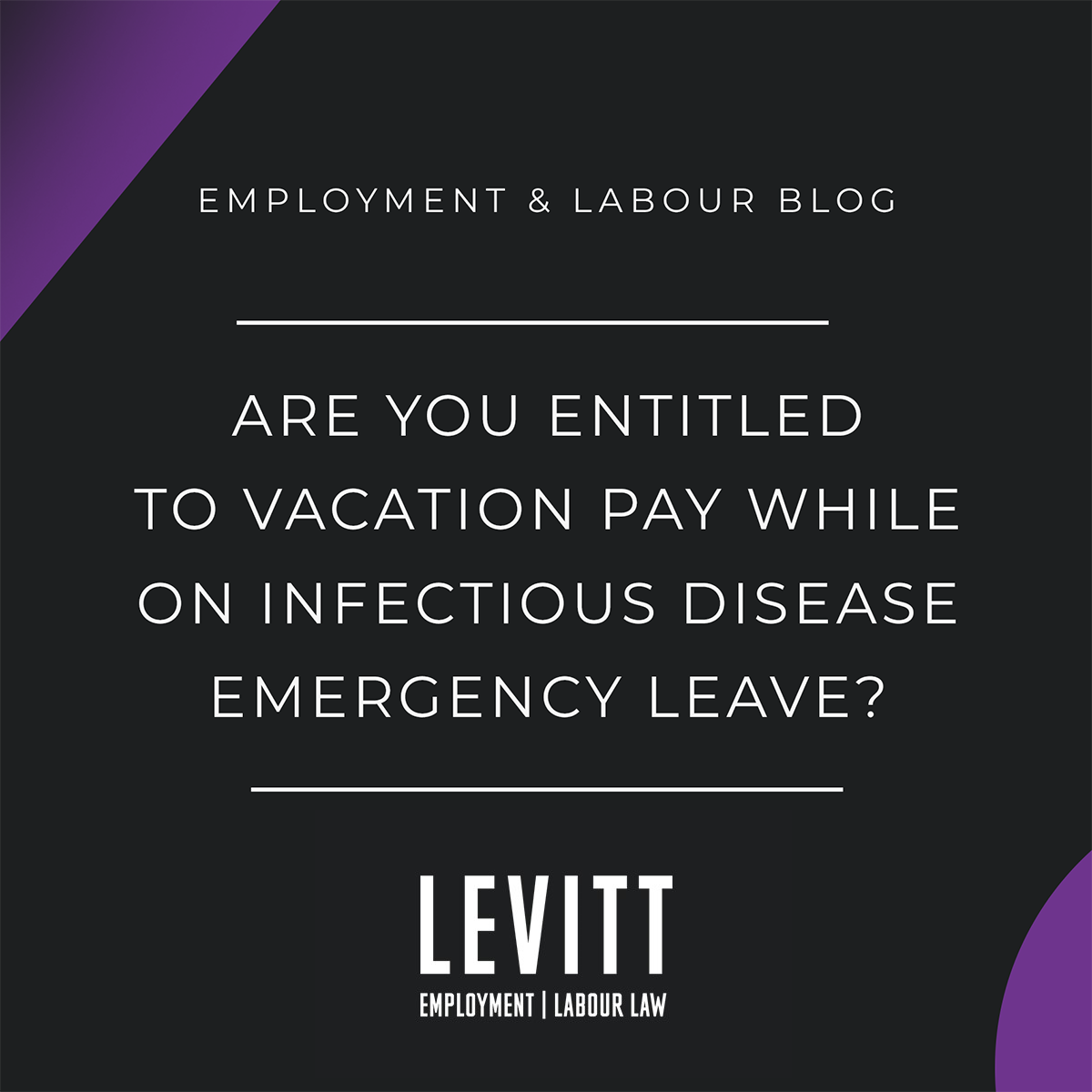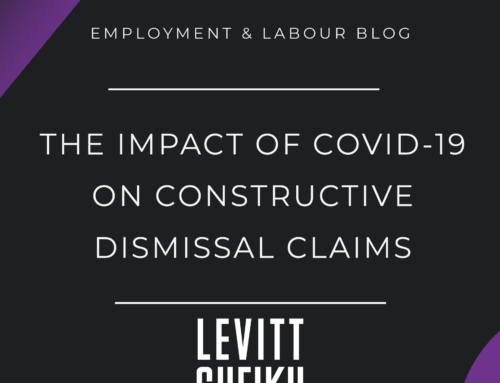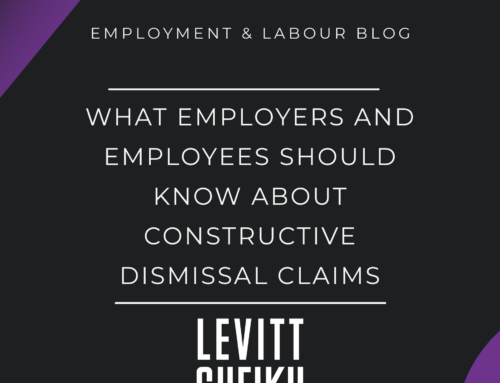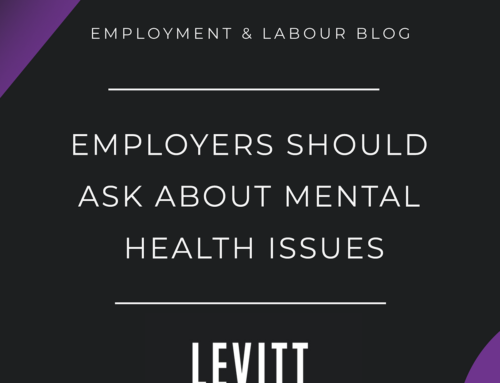With COVID-19 looming at the one-year mark, many employers and employees are wondering if you are entitled to vacation pay while on infectious disease emergency leave (also known as “IDEL”). The answer is not straightforward because it will depend on the individual’s employment contract. However, we lay out below the minimum requirements as outlined by the Employment Standards Act to give you a baseline of your entitlements.
The first thing to check is if you are entitled to accrued/active service and if you are allowed more than 2 weeks of vacation. Most commonly, vacation pay is an accrued entitlement which means that employees actively work towards building up their vacation pay. The downside to this is that while vacation time accrues (i.e.: the ability to take time off), you don’t accrue vacation pay if you are on leave– as you are not considered actively employed while on leave.
Vacation pay is 4% of an employee’s wages if the employee’s period of employment is less than five years, or 6 % of the wages if the employee’s period of employment is five years or more. Vacation pay is to be paid during the vacation entitlement period which is usually 12 months, unless an alternative vacation year has been established by the employer.
The Employment Standards Act (ESA) states that a non-unionized employee is entitled to 2 full weeks of vacation time and 3 weeks of vacation time if you are employed for over 5 years. An employer will provide vacation pay to the employee in a lump sum before the employee commences his or her vacation or at a time agreed to by the employee.
Under the ESA, your employer must keep a record of the vacation time that you have earned but not taken since your date of hire. An employer must also keep a record of the amount of vacation pay that an employee has earned during the vacation entitlement year and how that amount was calculated. If you are unsure of the number of days you are entitled to or the amount of vacation pay you have earned, ask for this information in writing.
The most important takeaway from year-end vacation entitlement is the following:
- Your employer must ensure that you receive the greater vacation entitlement that is detailed in your respective employment agreement; or
- The minimum vacation pay you would be entitled to under the ESA
You have the right to defer taking your vacation until the leave of absence expires but you must request this from your employer.
In short, in order to determine whether or not you are entitled to pay while on infectious disease leave is based on how much vacation you took during the calendar year. The answer will depend on how much vacation you are entitled to and how much was taken. The above lays out the minimum legal requirements, from there, it is up to you to ask an employment lawyer to review your contract of employment or for you to have a conversation with your employer.
Contact Levitt LLP When You Can’t Afford to Lose.






